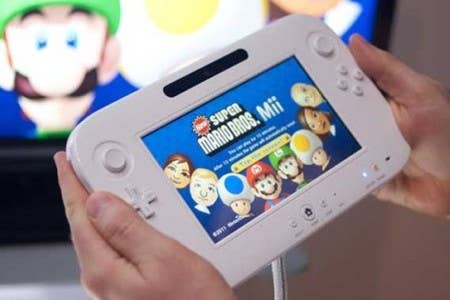Wii U "competitive position has deteriorated"
An analyst in Japan with Macquarie Capital Securities does not see a bright future for Wii U
Wii U will launch later this year (one rumored date points to November 18) and Nintendo is hoping to make a big splash with the system this year at E3 in June. Many questions about the console's capabilities still linger, however, and one analyst in Japan is not too optimistic about Wii U's long-term prospects.
David Gibson at Macquarie Capital Securities (Japan) Limited has downgraded Nintendo stock to "underperform" and remarked that there are "increasingly problematic structural problems for the company."
Gibson assigned a target price of ¥10,000 and noted that "if Nintendo went iOS/Android with games we think the stock could be worth ¥20,000+, but in our view that's not going to happen."
Ultimately, Gibson said the "competitive position of the WiiU has deteriorated" and he advises avoiding Nintendo stock until E3.
Gibson outlined three potentially big problems for Nintendo:
- Wii U GPU is less powerful than Xbox360/PS3 according to developers, which means it has no edge besides the tablet interface to attract core users. Initial third-party titles are likely to be only ports from Xbox360/PS3 titles. A bundled WiiSports/Mario title may help initial sales beat Wii launch, but Wii was severely production-constrained and the surprise factor from Wii U is less.
- iPad with its retina display shows where Apple is taking its 4 screen infrastructure, leaving Wii U less connected and less relevant. The GPU processing power for handsets is reaching consoles such that we think core gamers have no interest in buying into the Wii U. Apple might add in a controller to its line-up to be more attractive to core users. MocoSpace survey shows that 96% of gamers like to play their games at home, and with a better infrastructure we think iOS will be able to deliver a single game experience across four screens that Nintendo cannot.
- Wii U will have 1-year window to gain installed base before PS4 (Orbis) and then Xbox Durango launch in late 2013. At that point, the core gamer that Nintendo is after for the first time will have no interest in Wii U. We understand that Activision has no plans to support Wii U, which means the biggest selling title of Call of Duty will be missing; Konami is also planning minimal support.
On that last point, we reached out to Activision, and the official answer is that the publisher hasn't made any announcements about Wii U support. Activision Publishing CEO Eric Hirshberg has said multiple times that Wii U would more closely align with the types of games Activision makes, but we'll see how that translates into support from the company.









